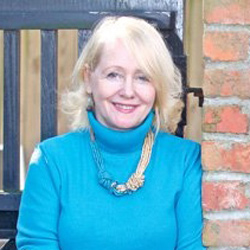Karin Gillespie
Trying to teach novel writing in one college semester is like trying to stuff a king-sized bed comforter into the tub of a compact washing machine. You can’t possibly fit it all the material in no matter how much you try.
I have only sixteen weeks to teach students elements of novel craft like characterization, setting and point of view. But I also want to give them my very best advice, wisdom I wished someone had told me fifteen years ago when I started writing novels.
I begin by telling my students it takes time to get skilled at writing novels, probably ten years depending on how often you practice, and you really should practice every day. I talk about the novelist Ben Fountain, author of Billy Lynn’s Longtime Halftime Walk, who took eighteen years to learn his craft, writing for hours every day while his wife supported him, a luxury most of my students won’t have.
I tell them that the only way you can learn the craft of novel writing is to write novels. Short story writing is a noble endeavor, but short stories are as different from novels as an associate degree is from a PhD. Every now and then a writer will publish a short story that’s expanded into a well-regarded novel, but generally the author has a style or voice so distinctive it compensates for undeveloped storytelling skills.
I think it’s important for students to recognize what readers are looking for in a novel. Yes, they want to be entertained or edified. Yes, they want metaphors so apt that they will pause to savor them, but what they unconsciously seek is character growth. Television audiences didn’t get hooked on Mad Men because of the vintage clothing and three-martini lunches; they got hooked because they were invested in the evolution of Don Draper’s character.
And how do characters evolve? Through forces of antagonism, but those forces need to be applied in a specific way, and that’s where storytelling skills comes into the picture. Beautifully crafted sentences add to a novel but they alone will not sustain a reader’s interest for the many hours it takes to read a 300-page book. To be a novelist is to be a storyteller. Screenwriting books are a good place to learn the craft. I always recommend John Truby’s Anatomy of Story: 22 Steps to Becoming a Master Storyteller.
I’ll usually get some disagreement from students on my next point, but I strongly believe you should have a plan before you write a novel. I know a lot of writers quote E.L Doctorow who said, “It’s like driving a car at night. You never see further than your headlights, but you can make the whole trip that way.”
But most reasonable people who go on long car trips have a general idea of their destination, and they consult maps before they head out. Very rarely do they say, “Car! Take me away.” A novel is a complicated undertaking, and it pays to have some kind of direction. Very often you’ll deviate from your plans, but it’s wise to have something in place from the onset.
Also it makes sense to write all the way through your novel without going back to perfect your prose. Writing a novel is analogous to building a house. First you get down the foundation. While you pour out the shape of your story, you shouldn’t be worried about the color of the tile in the master bath or what backsplash you want in the kitchen. In revisions large sections of prose are often cut so it makes no sense to tinker with it in first drafts.
I’ve written ten novels, seven that have been contracted with publishers, and yet in some ways I feel as if I’ve just begun on this journey, which leads me to the final point I make with students.
Choosing the novelist’s life is very analogous to the character arc of a protagonist. At first you plunge into the endeavor with an assortment of flaws, defenses, and preconceived notions that will initially hold you back. You’ll experience many obstacles to publication and very often you’ll cling to your weaknesses and bad habits, which will further thwart your goals.
At some point you’ll become so frustrated you’ll want to give up, but it’s crucial that you don’t. Just beyond your despair is the possibility for growth and change. If you can power through your dark night of the soul, you will bring more clarity and strength to each creative work you attempt.
 Karin Gillespie is the author of seven novels and has an MFA from Converse. Her nonfiction writing has appeared in the New York Times, Washington Post, and Writer Magazine. She writes a book column for the Augusta Chronicle and is a humor columnist for Augusta Magazine. She’s a part-time instructor at Augusta University.
Karin Gillespie is the author of seven novels and has an MFA from Converse. Her nonfiction writing has appeared in the New York Times, Washington Post, and Writer Magazine. She writes a book column for the Augusta Chronicle and is a humor columnist for Augusta Magazine. She’s a part-time instructor at Augusta University.
